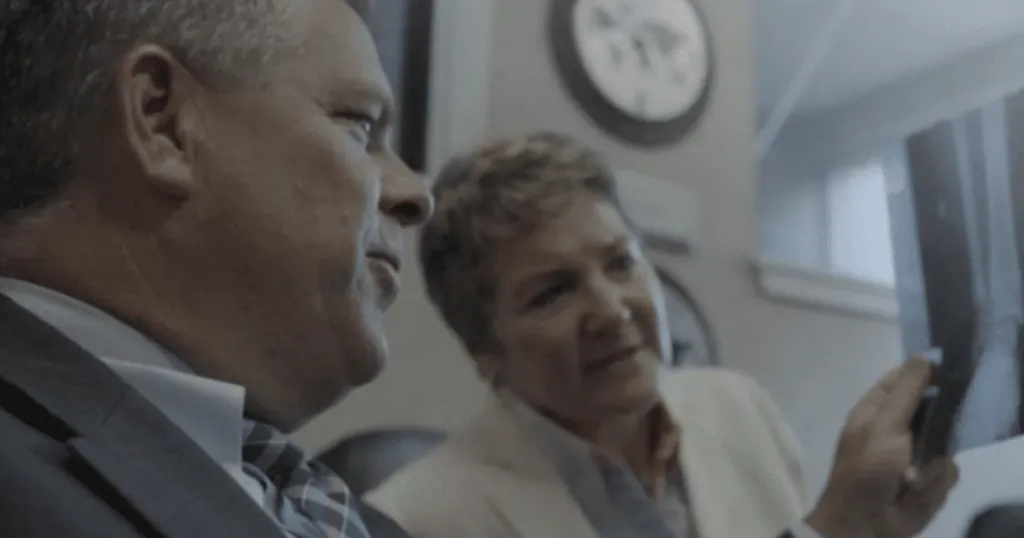A deposition is your chance to present your version of events, answer questions under oath, and provide crucial details that can impact your case. Therefore, it is natural to wonder, “How do I know if my deposition went well?”. While it’s natural to feel uncertain, some clear signs can help you assess how you did and prepare you for what’s next in the legal process.
What Is A Deposition?
A deposition in a personal injury case is a legal process where individuals involved in the case provide sworn testimony outside the courtroom. Depositions are part of the discovery phase of a personal injury lawsuit, allowing attorneys from both sides to gather facts, clarify details, and evaluate witness credibility before trial.
Unlike trial testimonies, depositions are not presented before a judge or jury but are recorded and used as evidence later during the trial. This process plays a crucial role in building a case strategy, helping lawyers identify strengths, weaknesses, and potential outcomes of the case. Understanding its purpose and significance can help you better appreciate the legal implications of depositions and how you can do well during a deposition process.
Key Signs That Your Deposition Went Well
The answer to the question “How to give a good deposition?” often comes down to how well you communicate and present yourself. While it’s natural to feel apprehensive, some clear signs can help you tell if your deposition went well.
The good signs that indicate your deposition is going well include:
Clarity And Consistency In Your Responses
Providing clear and consistent answers demonstrates that you understand the facts of the case and are confident in your statement. Contradictory and vague responses can weaken your credibility, where as concise and clear answers build trust and help reinforce your case.
Staying Calm And Composed
Remaining calm under questioning shows emotional control and confidence, even when faced with challenging or repetitive questions. Losing composure in a deposition can give the opposing attorney an advantage, so staying collected helps maintain credibility.
Answering The Question Directly
Focusing on the specific question asked and avoiding unnecessary elaboration is crucial. Rambling or going off-topic can create confusion and lead to many follow-up questions, whereas direct, to-the-point answers to a question help you appear certain and prepared.
Avoiding Over-Explaining
Providing more information than necessary can unintentionally harm your case. Concise, relevant answers prevent potential misinterpretation of your responses and ensure the focus remains on the facts you’ve provided.
Positive Body Language
Nonverbal cues such as maintaining eye contact, sitting upright, and avoiding fidgeting can also reinforce the credibility of your testimony. Positive body language conveys confidence, establishing you as a reliable witness.
Focusing on these key areas can help you better understand whether your deposition went well and how you can give a deposition that will contribute to a positive outcome.
Red Flags That Your Deposition May Not Have Gone Well
While a strong deposition can help build credibility, certain behaviors can indicate potential issues. Some red flags that may indicate your deposition didn’t go as planned include:
Inconsistent Or Contradictory Statements
Providing answers that conflict with your earlier statements can severely damage your credibility. Such inconsistencies may be perceived as a lack of honesty and reliability, which opposing counsel may use to weaken your case.
Defensiveness Or Aggression
Responding defensively or with aggression during deposition can signal that you may be unsettled or attempting to hide something. Such behavior can make you appear less credible.
Lack Of Preparation Or Confusion
Appearing unprepared or confused during the deposition can undermine your case. Stumbling over answers, seeming unfamiliar with key case facts, or confusion over details can undermine your testimony.
Not Fully Answering Questions
Failing to answer questions directly or providing vague responses can raise doubt about your intentions. Avoiding questions may also make it seem like you have something to hide, which could hurt your case.
Unprofessional Behavior
Rude, dismissive, or unprofessional conduct during a deposition can leave a negative impression. This behavior reflects poorly on you and your case, potentially influencing how your testimony is perceived and the overall outcome of your case.
Recognizing these red flags can help you identify areas for improvement and work with your attorney to better prepare for legal proceedings.
Tips For Performing Well In Your Deposition
Performing well in your deposition requires thorough preparation and a calm, confident approach. Here are essential tips to help you do well in a deposition:
Prepare Thoroughly
A skilled personal injury attorney will review all case materials, documents, and any relevant evidence in advance to prepare you for a deposition. An attorney will also help you to familiarize yourself with the facts to ensure your answers are accurate and consistent. In addition, an attorney will help you practice responding to potential questions, building your confidence and reducing your anxiety.
Stay Honest And Transparent
Always be straightforward and answer the questions truthfully. If you are unsure about or don’t know the answer, it’s better to say “I don’t know” rather than guess or speculate.
Practice Calmness And Composure
Staying calm during your deposition is crucial. Techniques like deep breathing, pausing before answering, and maintaining a steady tone can help you remain composed, even when faced with challenging questions.
Consult With Your Attorney
Work closely with your attorney to prepare for the deposition. They can guide you on strategy, anticipate potential questions, and clarify what to expect in a deposition. This preparation can help you navigate the process smoothly and protect your interests.
How Will Your Attorney Assess Your Deposition?
Your personal injury lawyer will play a vital role in ensuring your deposition goes well and supports your case. Here’s how they can help assess your performance and provide guidance:
Pre-Deposition Review
Before the deposition, your attorney will prepare you by reviewing potential questions that may be asked during the deposition and the best way to answer them, along with case details and strategies. This preparation can help identify areas where you may need to improve, such as clarifying your answers or staying focused under pressure, and ensure you give a good deposition.
Role Of Your Lawyer In The Deposition
During the deposition, your lawyer will aim to protect your interests. They may object to inappropriate questions from the opposing counsel, help clarify confusing questions, or provide guidance through brief consultations. Their role is to ensure the deposition stays within legal bounds and supports your case strategy.
Post-Deposition Review
After the deposition, your attorney will carefully review the transcript of the deposition. They will assess how your deposition testimony aligns with your case objectives and identify any weaknesses the opposing counsel may exploit.
Feedback From Your Lawyer
After the deposition is finished, your lawyer will provide detailed feedback, highlighting strengths and areas for improvement. They’ll also offer advice on how to strengthen your case moving forward, ensuring your deposition contributes positively to the overall case.
Conclusion
Understanding what to expect in a deposition and the key signs of a successful deposition, such as providing clear answers, staying composed, and being honest, can help you evaluate your performance. While it’s normal to feel uncertain, keep in mind that the full impact of a deposition becomes evident later in the case.
Working closely with your attorney and addressing any areas of concern can help strengthen your legal position. At Marasco & Nesselbush, we are here to guide you through your deposition to ensure the best outcomes. Call us today for tailored legal guidance during every stage of your case.
FAQs
What should I do if I think my deposition in a personal injury case didn’t go well?
If you feel your deposition didn’t go well, discuss it with your attorney immediately. They can review your testimony, identify any weaknesses, and adjust your case strategy to address any concerns or mitigate potential damage to your case.
How do I know if I answered the questions correctly?
You answered correctly if your responses were honest, clear, to the point, and consistent with the facts of your case. Your attorney can review your deposition to ensure your answers align with your case strategy.
Can a bad deposition hurt my case?
Yes, a bad or poorly handled deposition can weaken your credibility and potentially impact the outcome of your case. However, with an experienced personal injury attorney, you can address any issues and work to strengthen your position moving forward.
How can I prepare for a deposition and improve my performance in future depositions?
Thorough preparation is key; work with your attorney to review case materials, practice answering questions, and develop strategies. Staying calm, answering directly, and maintaining professionalism can help improve your performance in future depositions.
Should I contact my lawyer if I feel nervous before a deposition?
Absolutely! Your lawyer can help ease your nerves by providing guidance, answering questions, and practicing responses with you. Feeling prepared can give you the boost of confidence to do well during the deposition.
Do you have a case?
If you think you may have a case,
contact us now for a FREE consultation
"(Required)" indicates required fields


